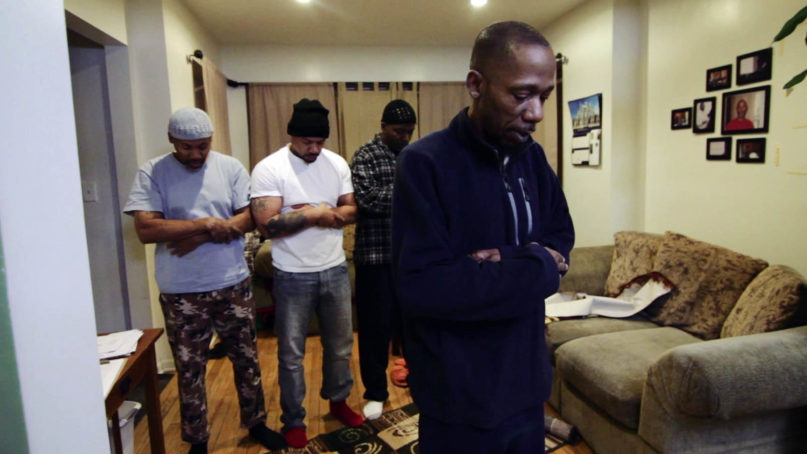(RNS) — Darrell Davis was 18 years old when he was first sent to prison.
By the time the former gang chief was released in 2013, after being found guilty of murder, aggravated battery and armed violence, he had spent more than half of his life on the inside. He had also discovered a new identity as a faithful Muslim, taking on the name “Sadiq,” Arabic for “honest,” as part of his resolution to leave behind his previous life of violence.
The documentary “The Honest Struggle,” directed by four-time Emmy Award-winning filmmaker Justin Mashouf, follows Davis’ journey as he returns to the South Side of Chicago and builds a new life after 24 years behind bars.
“Islam saved my life,” Davis tells Mashouf in the film, explaining how he leaned on his deen, or faith, to steer clear of the influence of former gang associates and the temptations of easy money to pay for the surgery he needed soon after leaving prison.
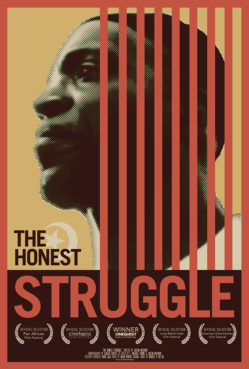
“The Honest Struggle” film poster. Image courtesy of “The Honest Struggle”
The film came out shortly before a report by the civil rights organization Muslim Advocates found that Muslims comprise 9% of state prisoners, though they are about 1% of the U.S. population, and that they often face serious religious accommodation violations.
Like Davis, about 90% of incarcerated Muslims in the U.S. become Muslims while in prison. But Davis is lucky: Mashouf’s film begins as Davis enters a program for formerly incarcerated Muslims in Chicago, run by the nonprofit Inner-City Muslim Action Network. Called Green ReEntry, the faith-based program provides on-the-job training, with participants rehabbing foreclosed homes in the South Side that will serve as transitional housing for more Muslim men leaving the system.
Mashouf, 34, spoke to Religion News Service about working with Davis, changing attitudes among U.S. Muslims toward formerly incarcerated people and how people of faith can help make the reentry process easier for ex-prisoners returning home. This interview has been edited for clarity and length.
What motivated you to start this project?
I come from a pretty areligious household. My father’s Iranian, my mom is Irish-German. I essentially was introduced to Islam through the story of Malcolm X, even though I lived in a nominally Muslim family. Malcolm X’s journey as somebody who was a product of racist society, and his radical change while incarcerated, and then his mission to reform afterward, was an incredibly inspiring story to me. In 2008, I received an email from a Christian prison chaplain in North Dakota who was looking for pen pals for his Muslim inmates. He had found my email from when I was in the Muslim Students Association at the University of Arizona. I immediately thought this was kind of God’s way of telling me I should look into this for my next documentary. So I went from writing with one guy in this prison to talking to a dozen incarcerated Muslims throughout the country.
In 2010, the project pivoted to be about reentry. As an independent filmmaker, I wasn’t able to get any permission to go into any of the prisons where I had contacts. There’s just too many institutional barriers. Then I was introduced to the Inner-City Muslim Action Network’s program. I was just absolutely taken aback by it.
What about Sadiq’s story and IMAN’s work compelled you?
Rami (Nashashibi, founder of IMAN) is such an electric, forward-thinking leader in our community and they have a really holistic model. I wanted to document the Green ReEntry program and all the ups and downs of this experience by following somebody coming directly from prison.
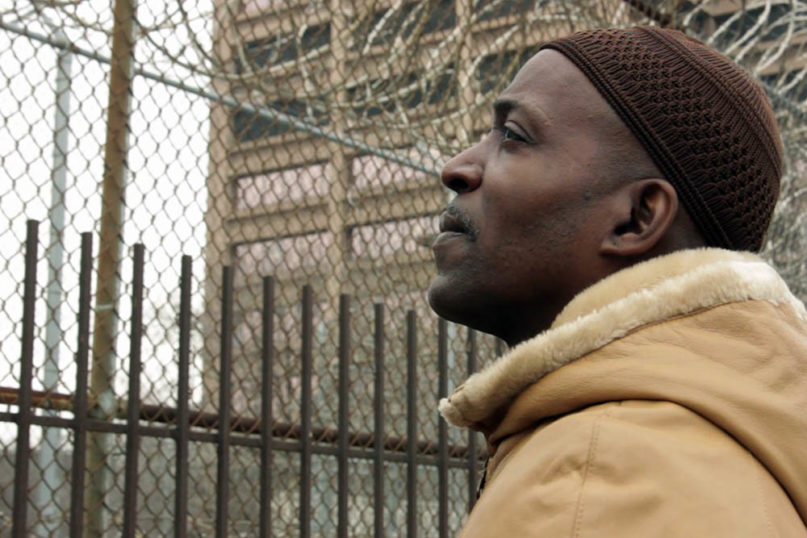
Darrell Davis, who now goes by Sadiq, outside Cook County Jail in Chicago in the film “The Honest Struggle.” Photo courtesy of “The Honest Struggle”
That opportunity came when Sadiq was released in 2013. I started documenting his journey until 2017 until he reached his parole date and he was a free citizen. Sadiq was really trusting in a documentary process — that can be really tough, especially for someone like him, a former leader in a gang, who had been through so much surveillance in the past.
What did you learn about the unique struggles of Muslim converts in prison?
Something fascinating about incarcerated Muslims is the systems that are built because of the Islamic teaching that exists within the prisons. One of my first subjects told me about how the Muslim community at that prison in North Dakota once stopped a large prison riot from happening by intervening between two rival gangs and paying the debt owed by one of the gangs. It felt incredibly prophetic. This group that was not directly involved in the conflict actually sacrificed from its own limited resources to prevent a war in prison.
Most people focus on the institutional barriers that plague people that are reentering society. That goes without being said. But there’s an incredible amount of psychological damage that sometimes occurs to people that are incarcerated, and there needs to be a process of healing. Unfortunately, our communities on the outside are unequipped and sometimes can do damage to the emotional state of the men and women coming out. Many, many people suffer from PTSD from being on the inside and they have trouble being in groups. They can have trouble being in intimate, interpersonal relationships.
Sometimes people coming from prison are met with the cold shoulder. And they also have social expectations of Muslims — since they created such a strong bond inside of the prison, they expect these bonds will continue on the outside. What ends up happening is they see that in many Muslim American communities, people show up on Fridays for prayers, say, “Hi, how are you,” and then they go on their way. This can come as a shock to some Muslims that are coming home.
One of the things that’s special about IMAN’s model is it creates a home and programming in which men and women who have a shared experience can gather for prayers, service projects, for taleem, or educational circles. Those are all very familiar spaces — programs that helped save these men and women from the horrors of prison. You have to continue those spaces in order to allow people to flourish.
Speaking of the damage Muslim communities can inflict — can you talk a bit about the stigmatization formerly incarcerated people face among Muslims?
Race plays an important role. The prison-industrial complex does more harm to black and Latino communities. So many of those that are coming home are black Muslims, and there is already a stigma toward black Muslims in the larger Muslim community. Racial issues can magnify even more the fact that somebody is also formerly incarcerated.
Sometimes community members are literally afraid, because they say that this person is potentially violent or they’re potentially going to try to steal from the community. Every move is suspicious. If something goes missing, the first person that’s going to get looked at and scrutinized is probably the formerly incarcerated brothers and sisters. They have preconceived notions of criminality of people coming home.
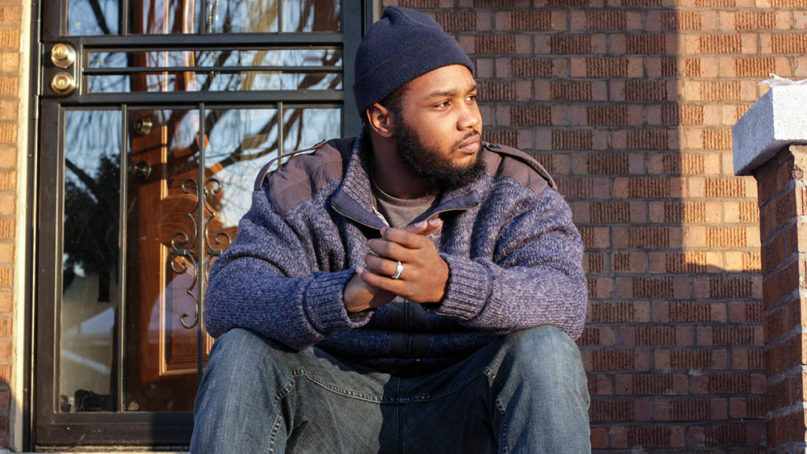
Qadir is one of the individuals followed in the documentary “The Honest Struggle.” Photo courtesy of “The Honest Struggle”
Sometimes there’s a cultural barrier, if it’s not a mosque that is centered around or is led by African American Muslims, and misunderstandings can take place between immigrant communities and black American Muslims. Those are all compounding factors that lead to disenchantment with the Muslim community.
When somebody comes home from prison, generally there’s no system in place at all to help those brothers and sisters. You need a place to stay and money for groceries. You need help getting your ID and medical care and finding a job or getting into a job skills program. But our communities, nine times out of 10, have no systems to facilitate that. I hope from this film the Muslim American community can see how important those systems are — and how beneficial the experience and the spirit of men and women coming home can be to our own communities.
We talk about Malcolm X being this icon, and we kind of place him up on a shelf, but every day we have people like him coming home. What are we doing to empower them? What are we doing for them, so that ultimately they can come and they can help us in a meaningful way?
Have you seen attitudes among American Muslims change toward incarcerated and previously incarcerated people?
Absolutely. In the past five years or so there have been various programs that have been started from the Muslim community to do both in-reach and outreach. Organizations like the Tayba Foundation and Link Outside provide educational opportunities and religious training for incarcerated Muslims via correspondence and in person, and they’re also linking them with communities for housing and other services when they’re on the outside. These organizations are really invested in convert care, which a large swath of these Muslim prisoners are.
The Lighthouse Mosque, which was created by Imam Zaid Shakir in Northern California, is just starting its reentry program Al Ouda, which means “The Return,” with a house and social services. Islah LA, with Imam Jihad Saafir, has two homes, one for men and one for women. Five or six years ago the Ta’leef Collective spearheaded a reentry program to give people a space to share their stories and offer social rehabilitation and mental health services.
This conversation is brewing in our community, and people are realizing how important these services are. I believe the tide is shifting, and I’m hoping this film can amplify that conversation.
Has your own faith been affected by making this film?
It’s made me realize how important it is to empower men and women that are formerly incarcerated because they have witnessed oftentimes the most difficult of tragedies and hardships. They’ve been compacted. When you have an incredible amount of pressure on a soul — it’s like how coal can create a diamond. It gives me immense perspective and reveals a lot of ugly truths about society.
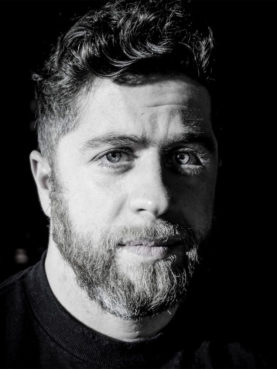
Filmmaker Justin Mashouf. Courtesy photo
In America, Muslims have a long legacy of caring about issues of incarceration. People remember Malcolm X as a political figure, not as someone who cared for souls inside and coming out of prison. The Nation of Islam has pioneered this type of work, and I want to see that continued in contemporary American society: creating systems to assist people that are coming home and people that are in transition. People deserve relief from that oppression. It’s actually an obligation on us to provide that. We can learn from the Nation in how they created structures of employment. At one time the Nation owned a fish company in which they were fishing, canning, selling and feeding people, and they were self-sustaining in many ways. It’s something I would like to see in our own community.
We have examples of leaders that were unjustly imprisoned in the history of Shia Islam. Imam Musa al-Kazim, who was a descendant of African people, was imprisoned for most of his life and was still able to make an incredible impact on the Muslim community while incarcerated. Imam Hasan al-Askari was behind bars for much of his life as well. People drew an incredible amount of wisdom and guidance from him and he was able to shape structures while being incarcerated.
We talk about speaking truth to power in our current discourse. What better person to speak truth to power than somebody who has been oppressed by that power in an incredible way?
Where is Sadiq now?
He’s currently in Los Angeles. He’s founded a cleaning company and is hoping to employ men and women who are formerly imprisoned to give them a chance. They’re cleaning the school and mosque space at Islah-LA. We see each other every week or so since we’re doing screenings.
